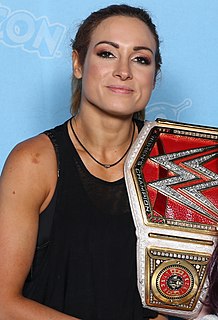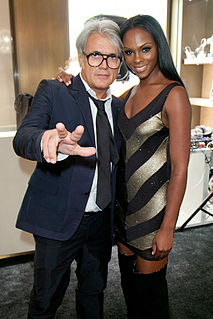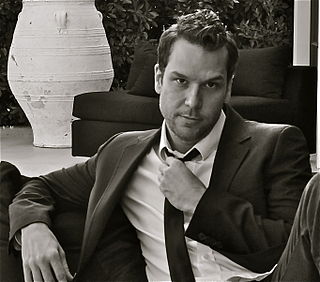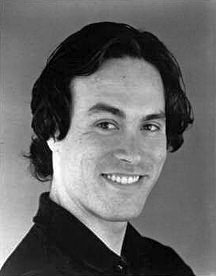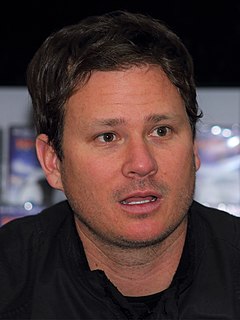A Quote by Gene Luen Yang
When I work on my own stuff - and I think this is true for anybody - but when you work on something that you just completely own, you are trying to stay as true to your own storytelling voice as you can.
Related Quotes
It's so important just to be true to yourself and to own your own character and take responsibility for it, and speak up and say, This isn't right; this isn't me.' It's a great lesson, not just in wrestling but in life. If you're not feeling something that's true to your heart... everybody's gotta be true.
As a songwriter, you tend to develop your own style, your own technique, based around what it is you're trying to write and perform, in terms of your own music. So a way of evolving a guitar style as a songwriter is much easier, I think, than developing a true style of your own just from listening to music or playing other people's music.
I've heard fate talked of. It's not a word I use. I think we make our own choices. I think how we live our lives is our own doing, and we cannot fully hope on dreams and stars. But dreams and stars can guide us, perhaps. And the heart's voice is a strong one. Always is. Your heart's voice is your true voice. It is easy to ignore it, for sometimes it says what we'd rather it did not - and it is so hard to risk the things we have. But what life are we living, if we don't live by our hearts? Not a true one. And the person living it is not the true you.
My advice is: to try and stay really true to the things that make YOU laugh, as opposed to trying to create a character that you think is funny. Some comedians get into bad habits when they are trying to create something that is not them, and they are trying to write a voice that isn't their true voice.
All I can tell you is that you cannot make choices in your own career, either career choices or choices when you're actually working as an actor, based on trying to downplay or live up to a comparison with somebody else. You just can't do that. You have to do your own work based on your own gut, your own instincts, and your own life.
Being happy is not all about love! Love is not everything. Work, friends, and achieving things... your finite thing in life can't be getting married and having children. Like, creating a life for myself that's my own, and my own road? That was always the most important thing for me. Right now, I have a kid and stuff, and it's fantastic to be a mother, but it's not the final thing. You want to stay an individual. You need to stay an individual for your kid, as an example of what a human being should be! You want to stay true to yourself and not become a half a person. That is so, so important.
I was working within a figurative representational framework, and there was a sense of reading the painting as a transparency, or truth, or autobiography, which I think is partially the burden of artists of color - or women, or anybody who is representing a so-called minority position. Are you actually telling a true story, or your own story? You don't just get to tell a story. The readings of the work didn't necessarily conform to my own understanding of mythology, where violence and eroticism and the body and all of these different forms coexist all the time.
I think that you find your own way. You have your own rules. You have your own understanding of yourself, and that's what you're going to count on. In the end, it's what feels right to you. Not what your mother told you. Not what some actress told you. Not what anybody else told you but the still, small voice.
We write to expose the unexposed. Most human beings are dedicated to keeping that one door shut. But the writer's job is to see what's behind it, to see the bleak unspeakable stuff, and to turn the unspeakable into words - not just into any words but if we can, into rhythm and blues. You can't do this without discovering your own true voice, and you can't find your true voice and peer behind the door and report honestly and clearly to us if your parents are reading over your shoulder.
If you're really going to uncover something as an artist, you're going to come into access with parts of your personality and your psyche that are really uncomfortable to face: your own ambition, your own greed, your own avarice, your own jealousies, and anything that would get in the way of the purity of your own artistic voice.
When you work with a major label they create their own message for you and a lot of the time that works great, or at least it did back in the 90's but now it doesn't work, so I think as an artist if you learn your own business, like anybody would when they want to start a little restaurant - they'd figure it out and then build it and they work hard - then it could be your own little business that you grew to as big as you want it to be but you had much more control with how to communicate it and how it's cared for.


